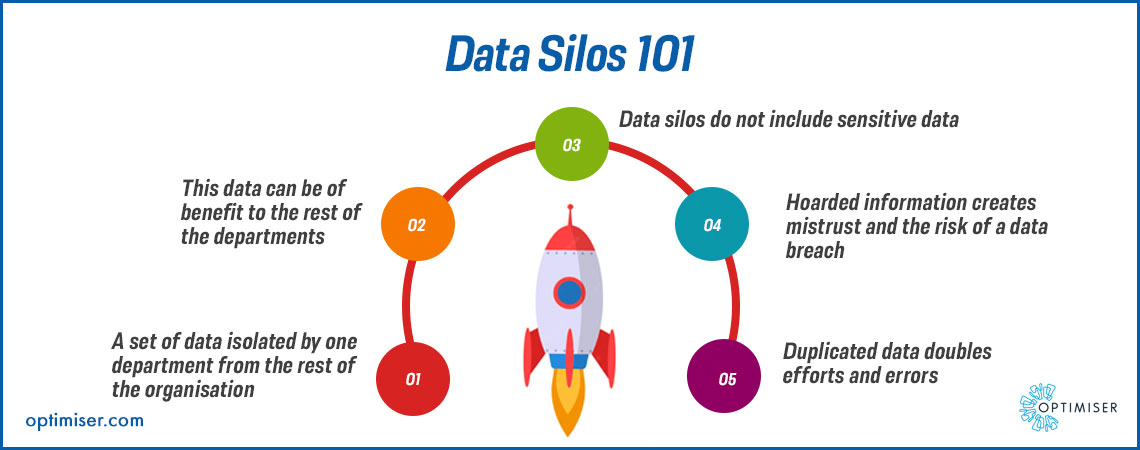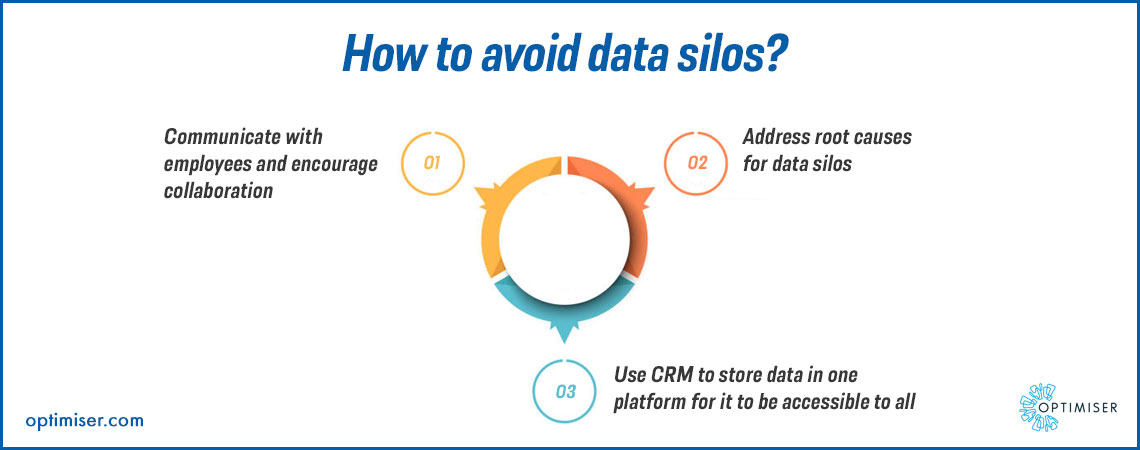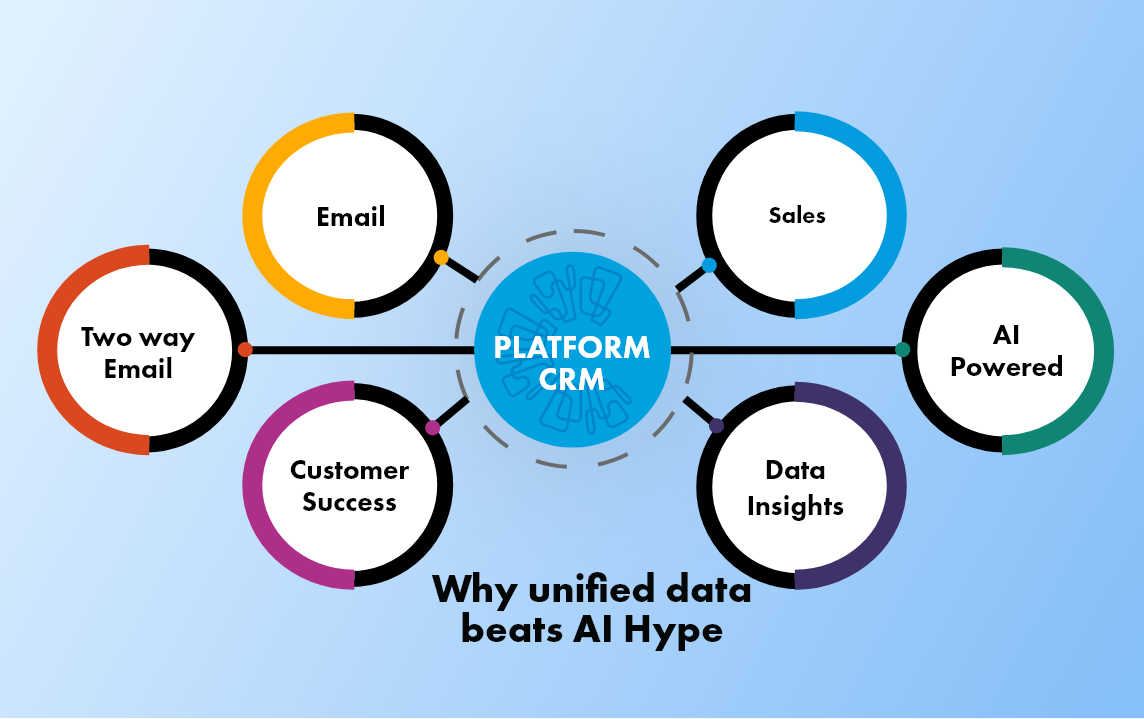.jpg)
Data Silos: Everything you need to know about them from causes to cures
A collection of data that is controlled by one department within an organisation and is isolated from the rest of the organisation is a data silo. It is important to note that sensitive information such as customer information, employee payroll data, etc. is not considered a data silo. CRM sales enterprise solutions such as Optimiser provide the power of one platform to businesses for storing all their information on one platform. Not only is it efficient, but it also improves the productivity of the employees.
As per 47% of marketers, the biggest challenge faced by them while gaining insights is data silos. This is because when data is siloed, it does not allow for a holistic view of the business. There is no one platform where all the company data is stored and analysed to make smarter and data-driven decisions. Additionally, when data is siloed, information is prone to be duplicated and the data quality suffers.
A holistic view of the business operations displays the full potential of the organisation, its strengths, weaknesses and how it can leverage data to overcome its competitors in the market.

Reasons behind the occurrence of data silo
Siloed structure in the organisation
Before the revolution of the cloud, every department created and managed its data. It was not seen as detrimental as every department set its policies, goals and procedures. Teams use their methods to work and analyse the data. Silos begin to build around the departments because of how data is gathered and reserved.
Culture in Company
If a company's culture allows the departments to work as segmented groups rather than as an entity, data silos are inevitable. Each department becomes a separate business unit with its work processes and challenges. They are far too focused on individual goals than they would be on the company's goals.
This culture will apply to data as well. If the sales and marketing teams work separately, they will be hesitant to share data due to the company culture.
Technology
Different departments using different technologies can create data silos. There are ample tech tools that promise to deliver productivity to specific departments. However, storing company data on separate platforms causes damage to collaboration and increases the risk of a data breach.
Instead of opting for a legacy software system, try CRM enterprise solutions like Optimiser that store data on one platform and all the efforts are focused on keeping the information secure on one platform.
How is a Data silo detrimental to business?
Limiting data view
Silos prevent important data from being shared. Every data has limited access to data and therefore, their analysis is incomplete, rendering their strategies unproductive. If there are inefficiencies within the organisation, the best way to figure them out is through uniting data on one platform.
Threat to data integrity
In data silos, it is often observed that the same information is stored in different databases. Due to these inconsistencies, data can become less accurate and less useful. There will be no way to track which data is being backed up and which has been updated at the latest date. None of the stored data can be trusted after some time.
Wastage of resources
Resources are wasted due to data silos as the same information is stored at different places. Storage space suffers excessively, leading the IT departments to purchase and maintain expensive storage that is not required.
Discourages collaboration
The biggest problem with a data silo is that it does not allow departments to collaborate. If the company culture keeps the departments separated, silos will fortify the culture. Considering that these departments work towards the growth of the organisation as a whole, it is not a misstep to keep data separated.

You May Also Like: 15 Insightful Stats Proving the Impact of Sales and Marketing Alignment
Curing data silos
Customer experience operations are managed in silos as per 54% of the organisations. Only 33% of customer experience experts state that communication and collaboration with different departments can improve customer experience.
In hindsight, a data silo is extremely harmful to collaboration between departments, creates an information barrier and deteriorates the customer experience offered by a company. So, how do we resolve it?
Change in management
If the company culture is behind a data silo, you will need to communicate with your employees to understand the challenges that they face. The management will have to commit itself to breaking down the siloed culture to shift the perspective of the employees to a more synergetic one.
Centralise data
A centralised data management system like Optimiser can assist businesses. It is the best way to pool all the company's data together and run deep analyses without devoting too many resources. It also helps that business owners do not have to spend too many financial resources on different technologies for data storage.
Data integration
Integrating data guarantees that data silos will be prevented in the future.
Self-service access
Centralised data in a CRM supported by the cloud allows IT departments to set up role-based access control. Meaning, that employees will have access to data that they are authorised to access as per their roles in the company. As they are promoted, they can be given further access to data without any delay.
Cloud storage
This goes without saying but cloud storage centralises data coming from diverse sources, ensuring it can be accessed by anyone from anywhere and at any time.
Optimiser CRM for data silos
Best CRM for enterprise sales, Optimiser CRM's power of one platform can discourage data silos. The information of an organisation can be reserved within the cloud storage provided by Optimiser. The CRM integrates with third-party applications and also offers customised integrations. Managers can keep track of who accesses the data and what changes are made. This improves transparency and accountability within the organisation. Not only that, Optimiser offers Role-based access control, meaning employees can be granted access to data that they need to get their work done and the rest of it remains secure. Sensitive information can be accessed by a select few.
Reducing the headaches of IT departments, all the while promoting a data-driven culture within a company, Optimiser CRM promotes unified business progression.
Summary
Data silos create an unwanted barrier within an organisation that can hamper its growth. In a world dominated by data, gatekeeping information can depreciate the company's value in the market. After all, if your employees are not open to collaboration and do not trust their colleagues, how can one expect the customers to find your brand reliable?

30 days free trial. No credit card required
 One powerful platform
One powerful platform
 Simple to use
Simple to use
 Comprehensive
Comprehensive



